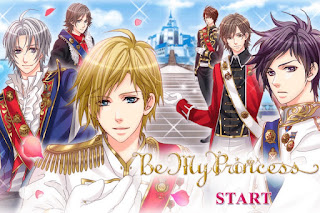Yay or Nay?: The Rossetti Letter (Novel)
After waiting and waiting years to read this book, I finally got a chance to when Olga introduced me to Book Depository—which no this isn’t a sponsored post, but I did want to get it out there. It’s this website in the UK where you can order books at a very affordable rate! And they’ve got a good selection of books too, which was where I was finally able to locate a copy of The Rossetti Letter by Christi Phillips. It takes a bit of time for the books to get here, but the price and the good customer service are totally worth it! Anyway, didn’t want to spend too much time doing that little plug, let’s get down to this book!
This is a historical fiction novel set in Venice and is quite possibly a second-best after Juliet by Anne Fortier—at least in my opinion. It’s well-written, fascinating, and has a dozen different twists and turns that, while not too shocking, do the job well, and create a great narrative.
So let’s get down to it! This is my review of The Rossetti Letter by Christi Phillips
THE STORY
Claire Donovan is a Ph.D. student writing her dissertation on Alessandra Rossetti, a Venetian Courtesan who delivered a letter to the Venetian court that exposed a Spanish conspiracy to overthrow the state in 1618. However, an arrogant Cambridge professor is set to unveil and present a new paper on Alessandra in Venice that may throw all of Claire’s research and career out the window, as it denounces Alessandra Rossetti as less of a hero, and more of a co-conspirator. As Claire tries to track down key documents in Venice that would reveal the courtesan’s true motives, she is courted by a handsome Italian, paired with an unruly teenager, and matches wits with her academic adversary. Through this story, both Claire and Alessandra’s stories are told alongside each other, as slowly, the truth in the history of what Alessandra was lies somewhere in between.
This was my hand at trying to summarize a very large, and very big tangle of plots. Trust me it is better than how I explain it here. The story does in fact switch perspectives— between Claire in the present day, and with Alessandra in the events leading up to the Spanish Conspiracy. It’s a wonderful parallel between the two women and the events in their lives that led them to where they end up. Alone, the story is just intriguing because you want to find out what happened with Alessandra—in that regard, I would have to say that Alessandra’s story is probably the more interesting of the two, but both are done (I’d say) equally well.
MY THOUGHTS
So, while I thoroughly enjoyed the book, I wouldn’t go out of my way to say it was a five-star. It was good—enjoyable. But not out of this world. I loved being taken back between past and present Venice. I visited Venice a couple years ago and I loved going through this book actually seeing the monuments the book referenced in my head, and places I hadn’t gotten the chance to see! As characters, I found Claire and Alessandra to be very aligned, and their stories, especially Claire’s even more so. Claire is kind of a lost soul— her husband left her on the same day as her mother’s funeral and she doesn’t trust in love again; her career being the only thing driving her. This work is her life, and through it, Venice gives her a second chance at everything.
Even the added subplot of having to take care of an unruly fourteen-year-old, which I felt problematic, really helped to deepen the story and provide overall character development for both Claire and Gwen (the teenager she has to look after). They give each other a new perspective on life, beauty, acceptance, and learning to move on. This book also has my favorite quote I’ve heard in a bit: beauties are not born, they are made. I love it. With that, the writing of this novel is engaging and keeps you guessing, and when you get towards the end, it feels like a Da Vinci Code meets Indiana Jones adventure, and I absolutely adored that.
As for downsides, one thing that can make this book a little disinteresting is 1) the fast-paced nature of the plot, and 2) the very elaborate historical language (at least in Alessandra’s case). As to the first, there’s a lot of subplots or scenes that could have been expanded on for greater impact—one coming to mind being a dinner gone wrong at Giancarlo’s mother’s house, the Italian that Claire is involved with. By the end of the novel, I didn’t quite get why they were involved at all—and there was more than one important scene with his arch that needed to be expanded on to really have an impact on me. The same goes for the Cambridge professor, but luckily that’s a bit more fleshed out. Finally, in Alessandra’s lines, I swear I had reread a lot. There were a lot of historical facts—or just relationships that were really complex or unexplained, and then Claire’s route has to reinforce how they worked— or re-explain them, which takes up space that could be used towards furthering her own development. Other than that though, this was a good story, with great characters and an intriguing premise, so don’t let these two things drag you down!
MY RATING
Overall I would give this a borrow—perhaps not a buy unless you’re really into historical fiction, like myself. It’s a good story, but it’s not one that everyone will love or like. I feel like you really have to be into the genre to appreciate this novel.
My Rating: ⭐⭐⭐⭐ (4 stars)
~Meghan



Comments
Post a Comment